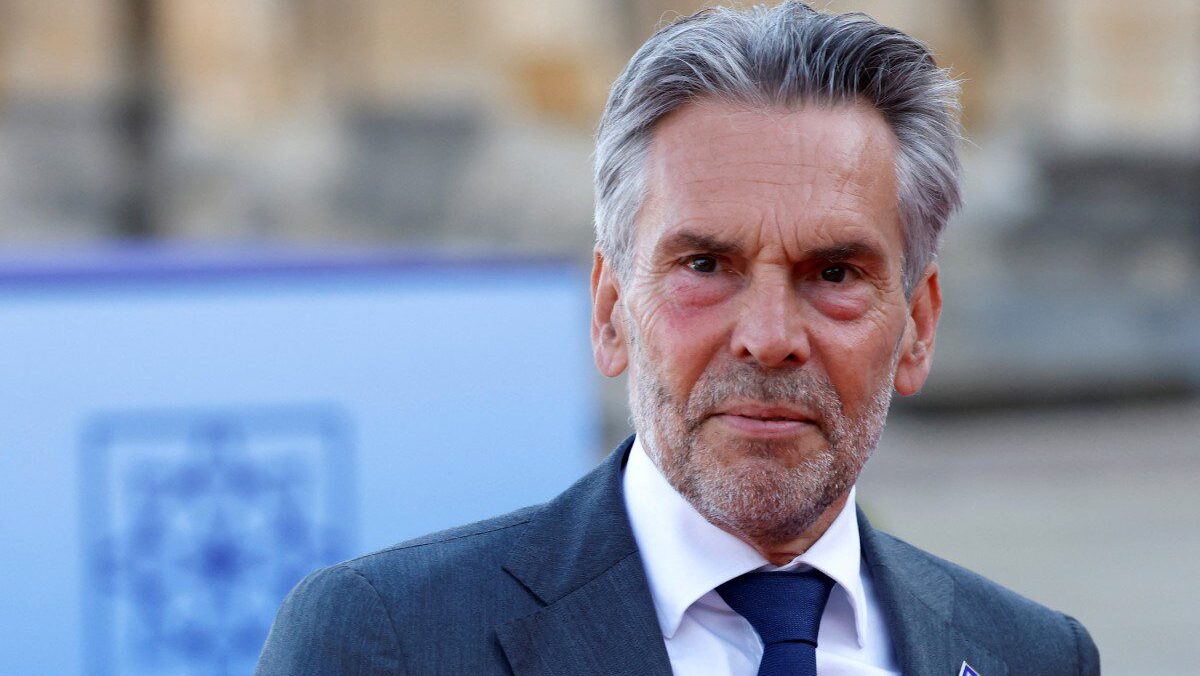
Netherlands’ Prime Minister Dick Schoof
Photo: Ludovic MARIN / AFP
Dutch Prime Minister Dick Schoof on Friday unveiled the Netherlands’ strictest migration policy yet, saying the country will request an opt-out from EU common policy on asylum next week.
The Dutch coalition government, formed after Geert Wilders populist PPV won almost one-quarter of the vote in last November’s elections, is making good on its promise to take a hardline stance on stopping asylum seekers and illegal immigrants from entering the Netherlands.
The Netherlands want to opt out of the European Union’s migration and asylum rules, and asylum minister Marjolein Faber plans to negotiate this with Eurocrats and collaborate with other EU countries that support stricter migration policies.
But legal experts and even Wilders himself has admitted that an opt-out of the EU asylum system could still take years.
“We will try to get a so-called opt-out for asylum, as the Danish have. That might take years if it is successful anyway,” Wilders told AFP in May.
Denmark negotiated a deal to exclude the country from being bound by common EU asylum policies.
Dutch migration experts said getting the EU to agree to an opt-out on asylum would be a tough ask.
“A Dutch opt-out can only be realized by amending the treaty,” the Dutch Advisory Council on Migration said, pointing out that all 27 EU member states had to agree to the move.
“This is not very likely because the number of asylum seekers must then be distributed among fewer other member states,” council members Mark Klaassen and Laura Kok wrote on its website.
“Not every member state will be enthusiastic about this,” they said.
But the Dutch government isn’t waiting for that process. The program presented Friday includes measures intended to make immediate changes.
The country is facing an ongoing migration crisis, asylum minister Marjolein Faber said in a video message on X Friday. The asylum system is overcrowded, with long processing times and rising costs, and the growing number of migrants is putting more strain on public housing, healthcare, and education.
To address the situation, the government has introduced a new program that promises the toughest asylum policy in Dutch history.
“The voters have clearly indicated that the influx must decrease. We are taking measures to make the Netherlands less attractive to asylum seekers,” Faber said.
Mensen voelen dagelijks de gevolgen van de asielcrisis. De kiezer heeft ons een duidelijke opdracht gegeven. Het roer moet om en de instroom moet direct omlaag. Daarom kom ik met het strengste asielbeleid ooit. Ik ga voor een veiliger Nederland.https://t.co/Cw4Y4pwTLl pic.twitter.com/Vcvx34XF5p
— Marjolein Faber (@MinisterAenM) September 13, 2024
Among those measures are changes to family reunification policies. Adult children will no longer be allowed to join their families. In the long term, only asylum seekers with permanent housing, adequate income, and at least two years of residence will be allowed to bring family members over—and “family members” will be redefined to cover core family only.
Asylum seekers will no longer automatically gain permanent residency after five years but will be required to return once their home country is deemed safe. Expanded rules will also allow for faster deportation of criminal migrants.
Rules for asylum seekers will also be tightened, and asylum seekers who miss an appointment will be immediately rejected.
In addition, the accommodations for asylum seekers will also be downgraded, and those without residence permits may face forced deportation if they don’t leave voluntarily.
“People are experiencing an asylum crisis,” PM Schoof told reporters at a press conference in The Hague.
We cannot continue to bear the large influx of migrants into our country. … We will focus on the rapid departure of those who cannot stay and an accelerated procedure for asylum applications that have no chance of success.
